Do you feel like you just can’t stop thinking about food and wonder if that’s “normal”? Are you spending so much time and mental space planning your next meal, counting calories/points/macros or researching the next diet trend or “lifestyle” you’ll try? In this post I’ll cover what food obsession is, why we become obsessed with food, if food addiction is real, and how to STOP being obsessed with food FOR GOOD!
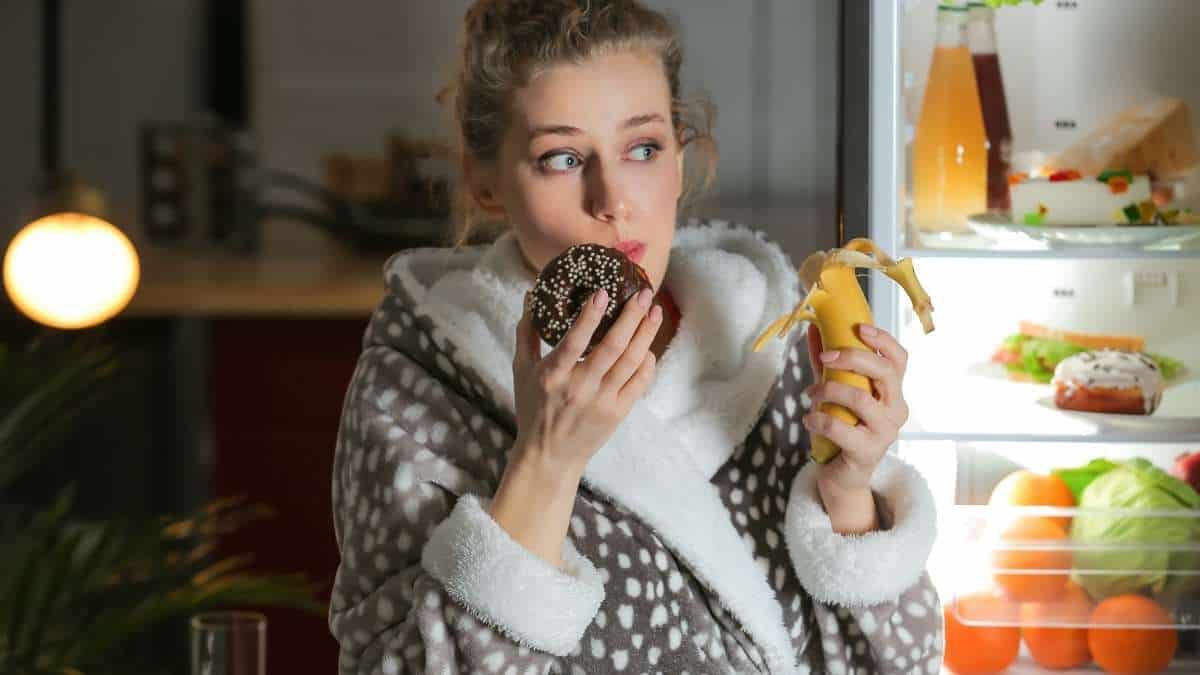
What Is Food Obsession?
Sometimes it’s hard to know what’s “normal” when it comes to thinking about food. I mean, we NEED it, right? So we kinda need to think about it. True. But there is a line that can be crossed from general thinking about food because our bodies need fuel to becoming straight up obsessed with food. Here are a few signs you might be struggling, or are on your way to struggling with, food obsession:
- Not being able to fully concentrate on other tasks between meals because you’re planning the next time you’ll eat
- Becoming stressed, anxious or angry if your planned meal/snack changes
- Constantly tallying calories, points, macros, amount of veggies/fruits eaten, etc.
- Avoiding social situations that may involve food in order to “stay in control”
Why Do We Become Obsessed With Food?
Food obsession and preoccupation with food can start early. Pressure to diet can come from our parents, and we can even induce eating disorder behaviors when we have our children focus on weight rather than health behaviors. Instagram usage (which starts so young now!) has been shown to actually increase one’s likelihood of disordered eating patterns such as orthorexia.
What we know is that when food is restricted, we develop a preoccupation with food. Whether that’s a diet or not eating breakfast because we didn’t have enough time, all we can think about is food.
One important thing to note here is that the restriction we’re talking about can be actually restriction of not allowing yourself to eat the type/amount of food you’re wanting or needing, but also physiological restriction.
Setting limits on food or even deeming them as “bad” or “unhealthy” can make us desire those foods more and then eat more of them when we do allow ourselves to have them. One study showed that dieters (those who would deem a milkshake “bad” or say that can only have so much) drank more of a milkshake VS non-dieters in the same setting.
It’s just like telling a kid not to press the big red button.. All they’re going to want to do and all they’ll think about is pressing the big red button!
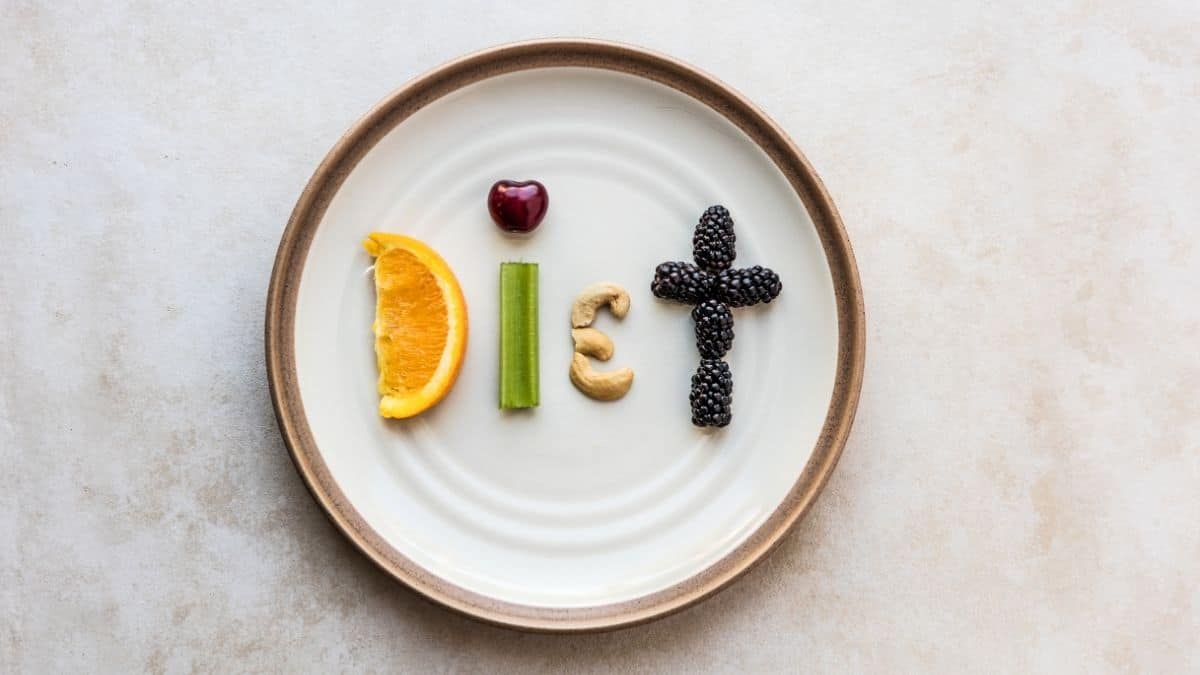
When Food Obsession Becomes Extreme
Food obsession can come in varying degrees. Many times, however, it starts off innocently, like tracking macros for “awareness” or to achieve a goal and spirals out of control into food obsession. This is what happened to me! There are a few types of more extreme food obsession, better known as eating disorders.
Anorexia Nervosa
Food restriction leading to low body weight with intense fear of weight gain with a disturbed appearance of one’s weight
Bulimia Nervosa
Regular binge eating behavior with lost sense of control followed by a regular purging behavior such as excessive exercise, vomiting, or improper use of laxatives
Binge Eating Disorder
Regular binge eating behavior with distress regarding binge eating; does not have the purging behavior that bulimia does
Avoidant/Restrictive Food Intake Disorder
An apparent lack of interest in eating of food based on sensory characteristics or concern about adverse consequences
Other Specified Feeding or Eating Disorder
This is an eating disorder that does not meet all the specifications for a clinical eating disorder diagnosis mentioned above, but causes significant impairment and distress with an explanation why they do not meet all diagnosis parameters.
Orthorexia would fall here, or the preoccupation with clean eating.
Unspecified Feeding or Eating Disorder
This is an eating disorder that does not meet all the specifications for a clinical eating disorder diagnosis mentioned above, but causes significant impairment and distress without an explanation why they do not meet all diagnosis parameters. This is typically used in Emergency situations where all information may not be able to be obtained by a care team quickly.
Many fall under the last 2 categories. This could be when you become obsessed with things like points, macros, ingredient lists, etc. Even if you allow yourself to break the “rules” you’ve set you may experience anxiety over it or feel guilty.
This “disordered eating” VS “eating disorder” is where much of the population lies. One study found that 75% of women in the US struggle with disordered eating behaviors.
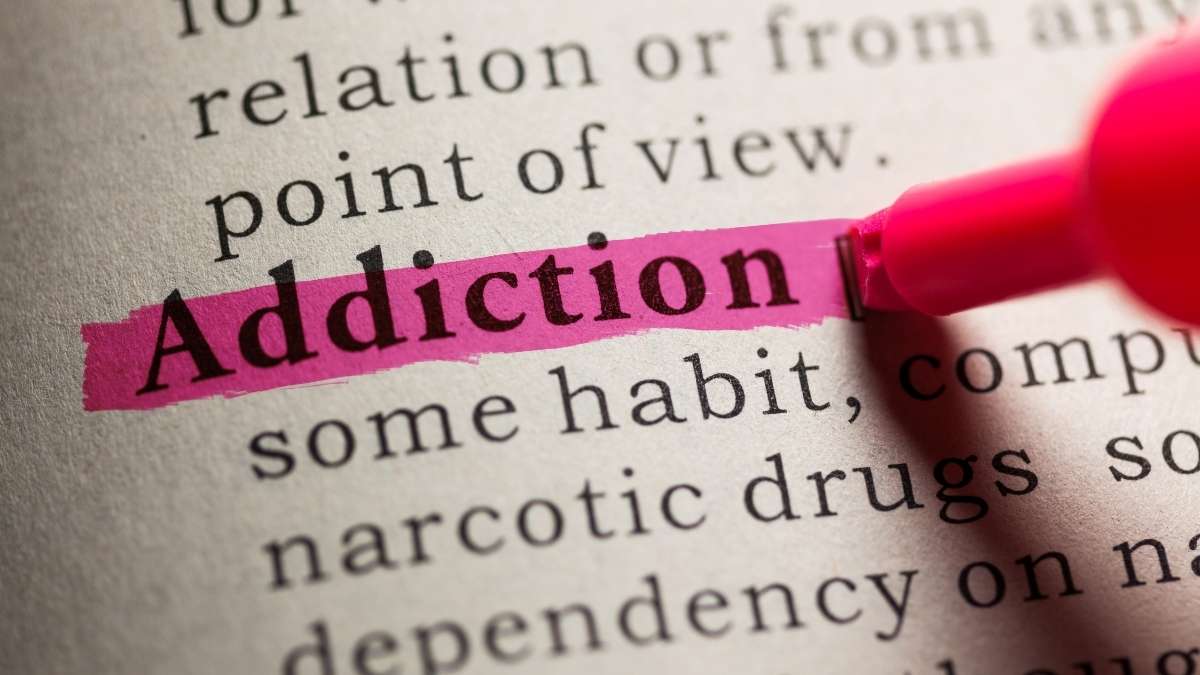
But Can’t Food Obsession Be Caused By Foods Being Addictive?
A few years ago, a tool called the Yale Food Addiction Scale was designed to evaluate addictive-like behavior that translates its criteria for substance dependence to calorie-dense foods.
A later study has since identified that as this tool identifies those with a ‘food addiction’ as likely to have bulimia – and that terming individuals as being addicted to food may hinder their care when they need to be treated for an eating disorder. A group of researchers coined that using food addiction as a term is misleading, and its behaviors are more closely linked with binge eating disorder.
This commentary states that more research is needed to fully understand the phenomena that is happening at the neurobiological level to better inform recommendations for patient care. Food comes in variety and does not have a single pharmacological action like those found in drugs.
Using the term ‘food addiction’ is misleading when the physiological response is not the same – and could have repercussions in patient care without proper understanding.
What Does Addiction Even Mean?
Addiction is defined as:
Addiction is a primary, chronic disease of brain reward, motivation, memory and related circuitry. Dysfunction in these circuits leads to characteristic biological, psychological, social and spiritual manifestations. This is reflected in an individual pathologically pursuing reward and/or relief by substance use and other behaviors.
Addiction is characterized by inability to consistently abstain, impairment in behavioral control, craving, diminished recognition of significant problems with one’s behaviors and interpersonal relationships, and a dysfunctional emotional response. Like other chronic diseases, addiction often involves cycles of relapse and remission. Without treatment or engagement in recovery activities, addiction is progressive and can result in disability or premature death
–The American Society Of Addiction Medicine
We know that food can give us the same ‘reward’ stimuli as the social stimuli such as positive expressions from friends, our own social reputation, and maternal and romantic love through dopamine. Who doesn’t want to feel good?
We also know that the more that we restrict foods, the stronger our brain response of reward, attention, and motivation is to images of foods, which can make us more susceptible to bingeing behaviors when compared to those who are eating enough to meet their needs.
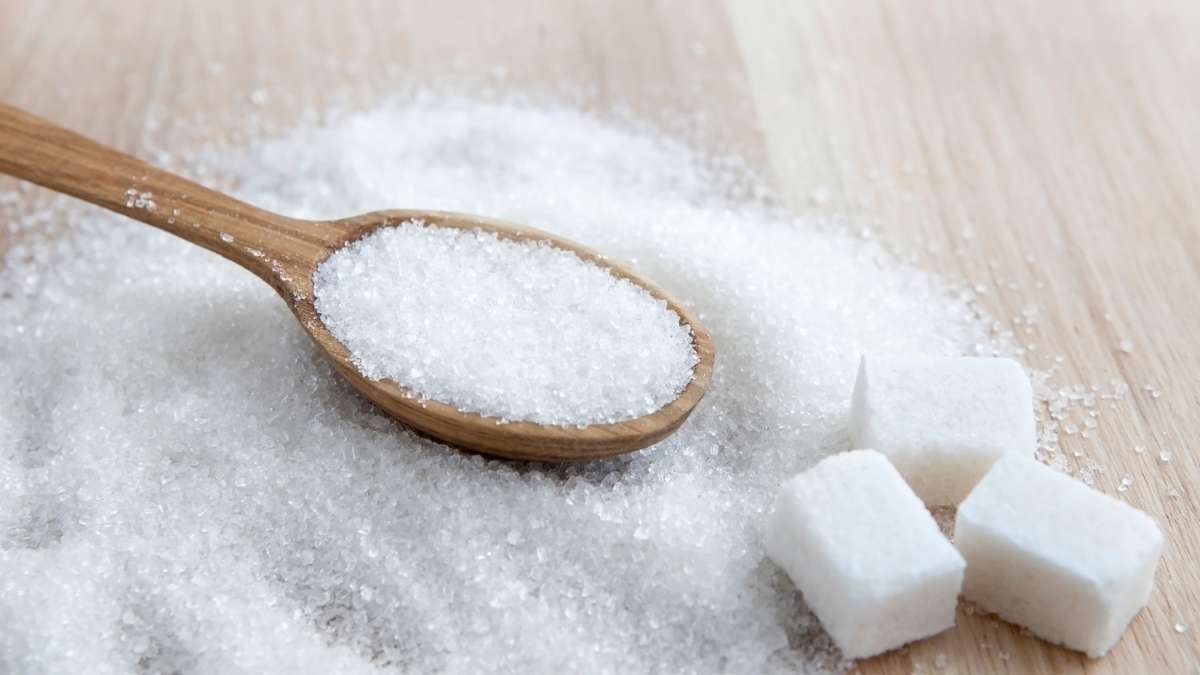
In 2005, a study with rats got a lot of media attention. This study claimed to link sugar and addiction being related- but glazed over that in order to induce this ‘addiction’ they restricted one group of rats to only have access to the sugar for 12 hours a day to develop ‘dependency.’ As scientists (yes I’m a dietitian and a scientist!), we call this ‘glazing over’ a confounding factor – something outside of the controlled parameter of the study.
I’d argue that they weren’t creating dependency, but rather a restrictive environment; causing the rats to overeat because they didn’t know when their next meal would come.
Additionally, animal models can give us hints into human metabolism, though they can’t give us definite answers on how humans will respond to a certain stimulus. They’re important to inform our recommendations and research, though they can’t be the sole recommendation for why a scientific phenomena is happening in humans.
A meta-analysis (where they review and analyze all the data on a given topic), the strongest or gold standard for recommendations based on science, shared that there is little evidence to support that sugar is addictive. They came to a conclusion based on the confounding factor we’ve discussed: the science only suggests addictive behaviors when access to sugar isn’t consistent.
A later cross-sectional study among college students found that one’s unique perception on the reward value of foods was a predictor of whether or not they would consume them in excess.
Does this sound familiar? Like food rules, perhaps? We work on breaking these in The SociEATy and end the seemingly endless restrict-bingeing cycle.
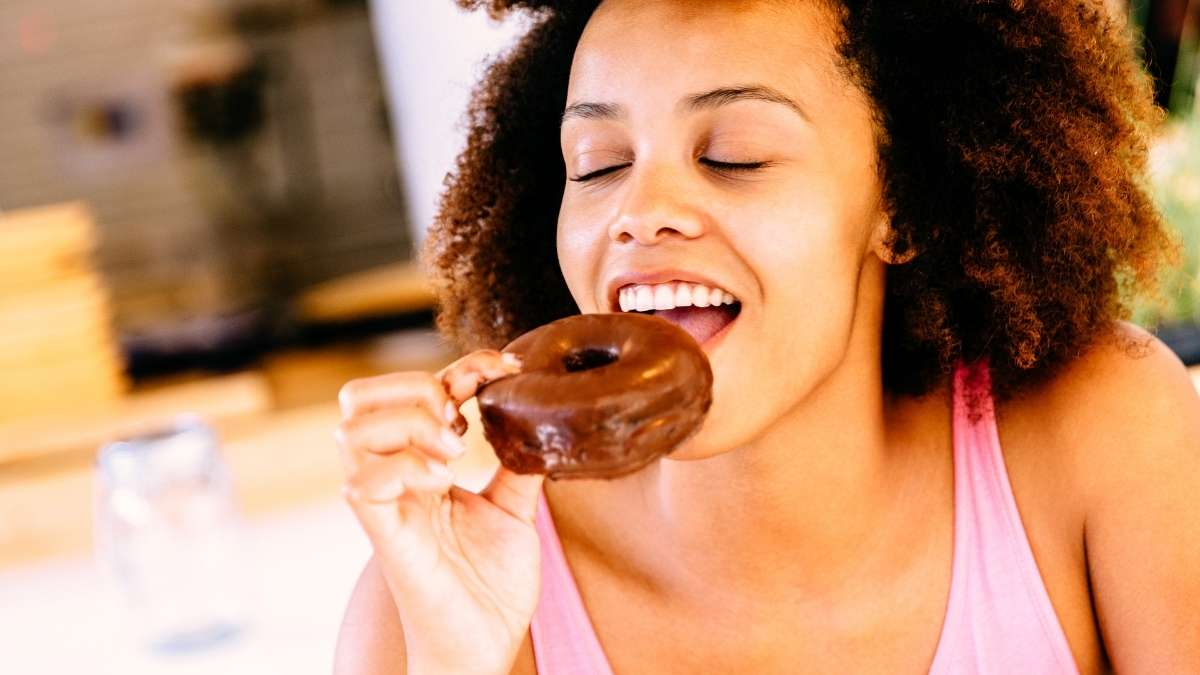
To Sum Up “Food Addiction”
Food addiction is less of an addiction to food than it is than a biological response to food scarcity aka dieting aka food rules. We get this positive response because we want to be fueled – that’s why we feel good when we eat!
How Do I STOP Being Obsessed With Food?
So by now you probably have an idea if your thoughts of food are “normal” or if they’re crossing over into food obsession territory. If you’re crossing that threshold what do you DO!? Here are a few tips:
Tip #1: Stop Restricting Overall Amounts Of Foods
In order to stop food obsession your body needs adequate energy. Thinking of food is actually a hunger cue. So if you find yourself constantly thinking about it you might need MORE of it!
Tip #2: Stop Viewing Food As “Good” Or “Bad”
Firstly, food does NOT have moral value. When you say a food is “bad” or “unhealthy” you’re going to wind up wanting it more and likely in larger quantities. Remember that milkshake study I referenced earlier?
Secondly, this can be a process. I mean, our food rules of what is “good” and “bad”, “allowed” and “off limits” didn’t just pop up over night so it’s unrealistic for us to expect them to just vanish that quickly.
I have an entire blog post that goes over how to identify & break food rules. Doing this will help you to overcome your fear of those “bad” foods and see foods neutrally.
I also recommend picking some mantras & affirmations to reminder yourself food is neutral like “I deserve to eat ALL foods” or “Guilt isn’t an ingredient so I won’t add it!”. I have another great blog post with a list of my fave intuitive eating affirmations for more ideas!
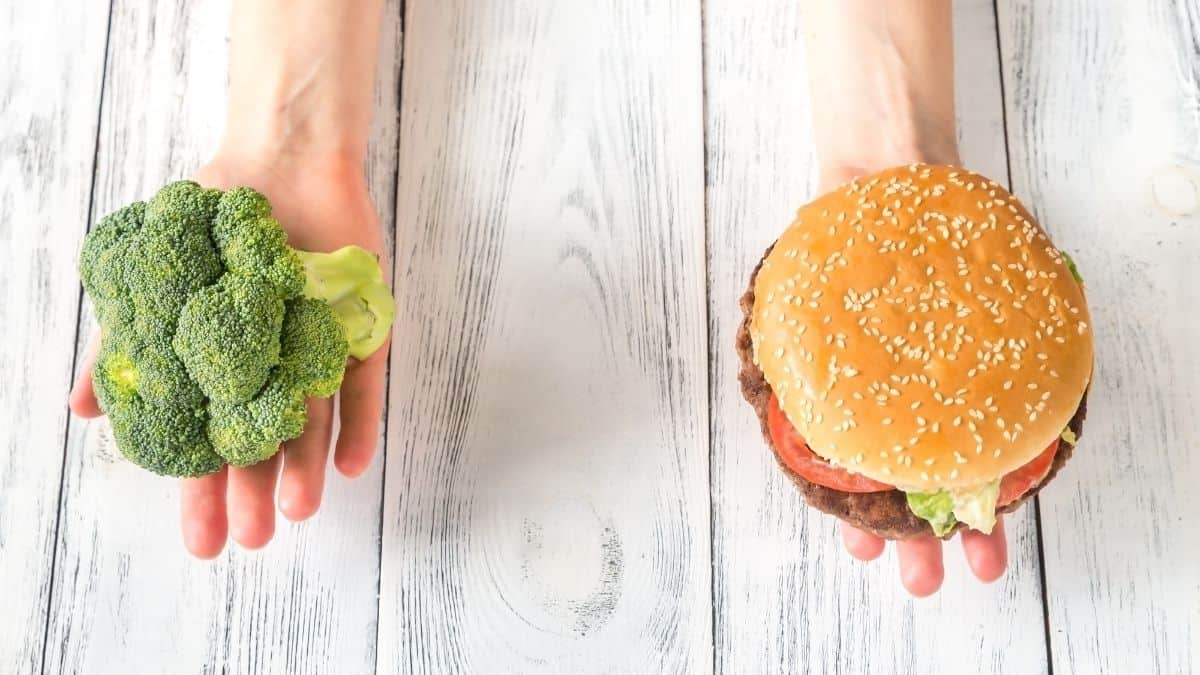
Tip #3: Make Peace With Your Body
One of the big reasons food rules develop is because we want to manipulate the size/shape/weight of our bodies. In order to make peace with food you have got to learn to make peace with your body. This is SO important that we devote an entire stage to it in The SociEATy.
I have a blog post on how to overcome negative body image as well as how to overcome your fear of weight gain that will be super helpful.
And if you’re like “Colleen… Okay so that’s all great but I want to be HEALTHY!” I gotchu. Weight and body size are NOT great indicators of health. I want you to be healthy, gorgeous. I mean, as a Registered Dietitian that’s kinda my job, right?
You truly can be healthy at any size (Checkout my blog post on health at every size AKA HAES explained here!). Kinda like we all have different shoe sizes or the way a Chihuahua looks different from a German Shepard, we all have unique body shapes and sizes.
I teach how to implement gentle nutrition to honor your health AND make peace with food. I have an entire blog post on what gentle nutrition is and also one of my fave tools for implementing it, the food and mood journal.
A Final Note On Food Obsession
Focusing on clean eating, food rules, and weight loss in your health journey shouldn’t be the main goal on your wellness journey. We know that health behaviors such as eating 5 servings of fruits and vegetables, regular exercise, moderate alcohol consumption, and no smoking were better predictors of health than weight alone.
And when we continually obsess over food and ‘yo-yo’ diet, we may be placing our bodies at more risk for chronic disease, high blood pressure, lessening bone density, and RED-S.
There is growing research to support a set weight (see my post on set weight), a weight that our bodies want to be at to function optimally. Weight is not a food + exercise equation that our society (& the diet, ‘wellness,’ and ‘fitness’ industries) wants us to believe is in our complete control with food rules.
The key to stop being obsessed with food is to find food freedom.
What are your thoughts on food obsession and food addiction? Let me know in the comments of this post!
Other Blog Posts You Might Like:
XOXO
-Colleen
This blog post was written by Colleen Christensen, RD and researched and written with the help of Amy Sharn, MS, RDN, LD.

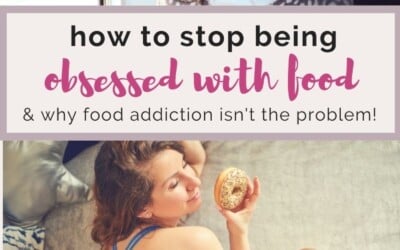
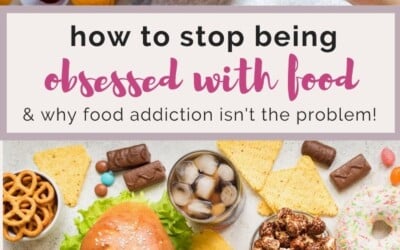
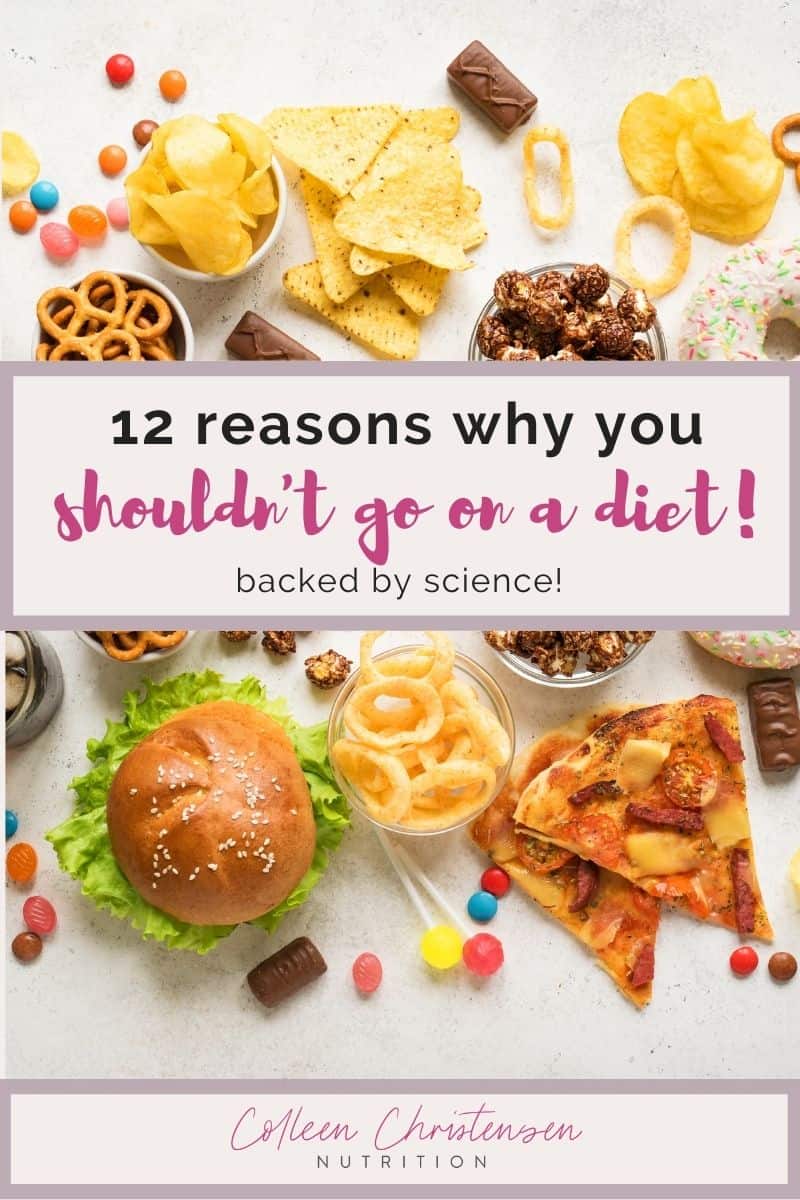
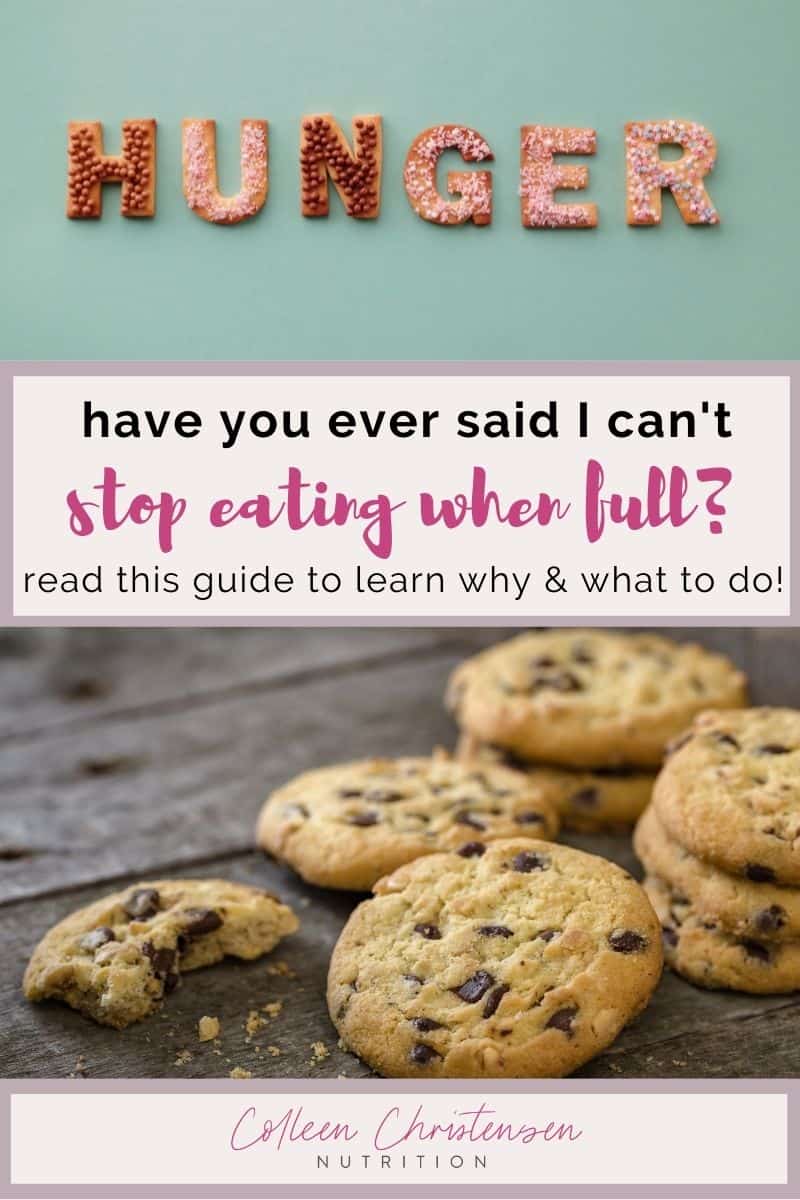
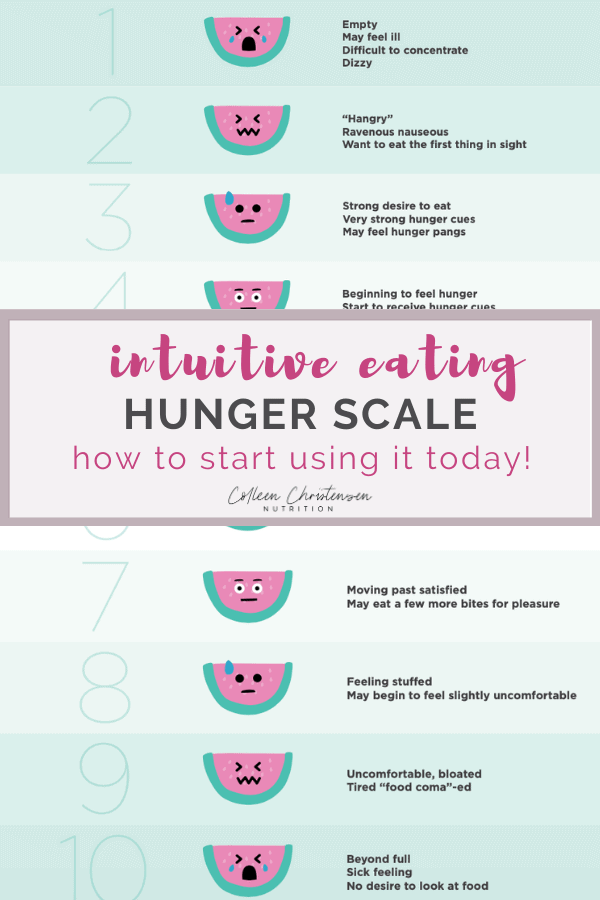
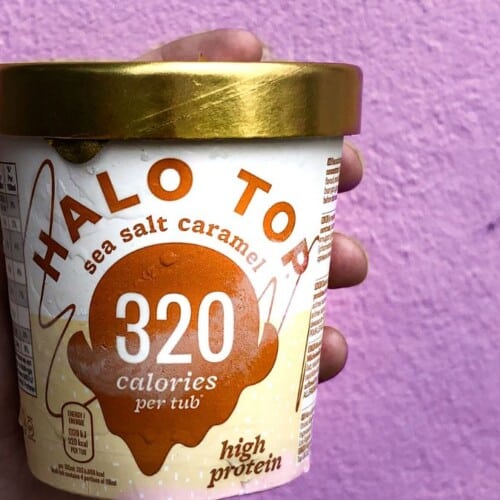



Danielle Cotton says
This was a really informative article! Well written and really helpful, it answered a lot of questions I had about my past eating habits. My almost teenaged daughter has several classmates that are struggling with wanting to diet and I’m considering sharing this article on the class Facebook page.
Colleen says
Hey Danielle, I’m so glad this was helpful! Feel free to share!
Anna says
I need to lose almost 100 pounds because my knees and back are not happy at my current weight. How can I lose weight for health reasons without dieting?
Colleen says
Hey! This blog post might help! I’d recommend focusing on health promoting behaviors not weight itself! https://colleenchristensennutrition.com/haes-explained/
Rachel says
I feel like I have a food obsession because I just love food :/ Especially since I’m a SAHM and a lot of things are the same day to day, delicious food is always something I look forward to and think about.
Colleen says
I understand! That could be partly emotional, wanting something to look forward to and seeking food for that pick-me-up
C says
Hi Colleen,
I recently found your YouTube videos are articles and I’m really grateful for all that you put out into the world! I would love your advice…I started changing my ideas around food and not restricting anything. I bought two different kinds of box cookies to keep in the house, which I hardly do because I end up bingeing. Well, I’ve managed to make them last 5 days so far, but the past 2 days I have binged about 6-8 small cookies in one sitting….twice. I tried to be mindful and listen to my body….it told me it tasted amazing and to keep eating more! Should I eat the cookies until I’m satisfied and then buy more? Will the craving to eat cpokies ease up? Please advise! Thank you so much.
Colleen says
Hi! yes! This blog post explains it more: https://colleenchristensennutrition.com/what-to-expect-when-you-stop-dieting/